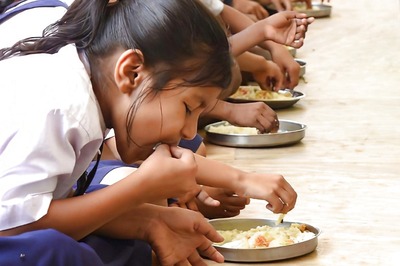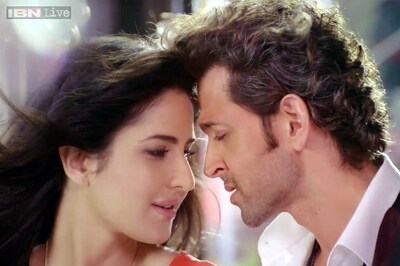
views
New Delhi: Prime Minister Manmohan Singh flies to Sri Lanka on Friday to attend the 15th SAARC summit that will bring together leaders of eight countries from a region that is increasingly looking at democracy as the answer to its many problems.
The visit will also be the first by a Congress prime minister to Colombo since the eventful days of July 1987 when Rajiv Gandhi went there to sign the India-Sri Lanka accord with then president J R Jayewardene in a bid to end Tamil separatism.
Immediately after his arrival in Sri Lanka on Friday afternoon, Manmohan Singh will meet president Mahinda Rajapaksa - who considers himself a friend of India. The two leaders may again meet later in the evening.
The PM will also interact on the same day with some political leaders and groups of Indian origin. It is not clear yet if Manmohan Singh will meet the Tamil chief minister of Sri Lanka's eastern province, Sivanesathurai Chandrakanthan alias Pillayan, a former Tamil Tiger guerrilla.
The two-day SAARC summit opens on August 2 where India will hand over the baton to Sri Lanka. Among the others attending the meet will be President Maumoon Abdul Gayoom of the Maldives, Nepal's caretaker prime minister G P Koirala, Bangladesh Chief Advisor Fakhruddin Ahmed, Pakistan Prime Minister Yousuf Raza Gilani and Bhutan Prime Minister Jigmi Thinley.
While winds of democracy are beginning to blow in the Maldives, where elections have been promised in October, Nepal has finally bid goodbye to monarchy.
Pakistan has just had an elected government while Bangladesh has pledged to hold elections. Even Bhutan has embraced a system based on free elections.
Also attending the SAARC summit will be observers from China, South Korea, Japan, Iran, the US and the European Union. Two other countries, Australia and Myanmar, have sought observer status.
Foreign ministers of SAARC countries will end their two days of deliberations in Colombo on Friday, thrashing out much of the contentious issues so that they become easier for their leaders to take forward.
Sri Lankans have repeatedly complained that while their leaders keep visiting India, Indian leaders do not return the compliment. There was a proposal to invite Manmohan Singh to Colombo in February this year to attend the 60th anniversary celebrations of Sri Lanka.
Manmohan Singh's visit also comes at a time when the ethnic conflict in Sri Lanka has continued to cause pain and suffering, leaving thousands dead since fighting resumed towards the end of 2005.
With the Norwegian peace facilitation stalled, India has told Sri Lanka that there is a need to put forward a credible devolution package at the earliest so as to form the basis for a lasting political settlement of the ethnic issue.
But the Sri Lankan government is increasingly confident that it can crush the Liberation Tigers of Tamil Eelam (LTTE) although some officials in Colombo maintain that Tamil nationalism will never die.
Besides growing economic ties, India and Sri Lanka have also quietly expanded their military relations. More and more Sri Lankan military personnel now get trained in India from all three wings of the armed forces.
The LTTE, which is outlawed in India, has been critical of New Delhi's support to Colombo.



















Comments
0 comment